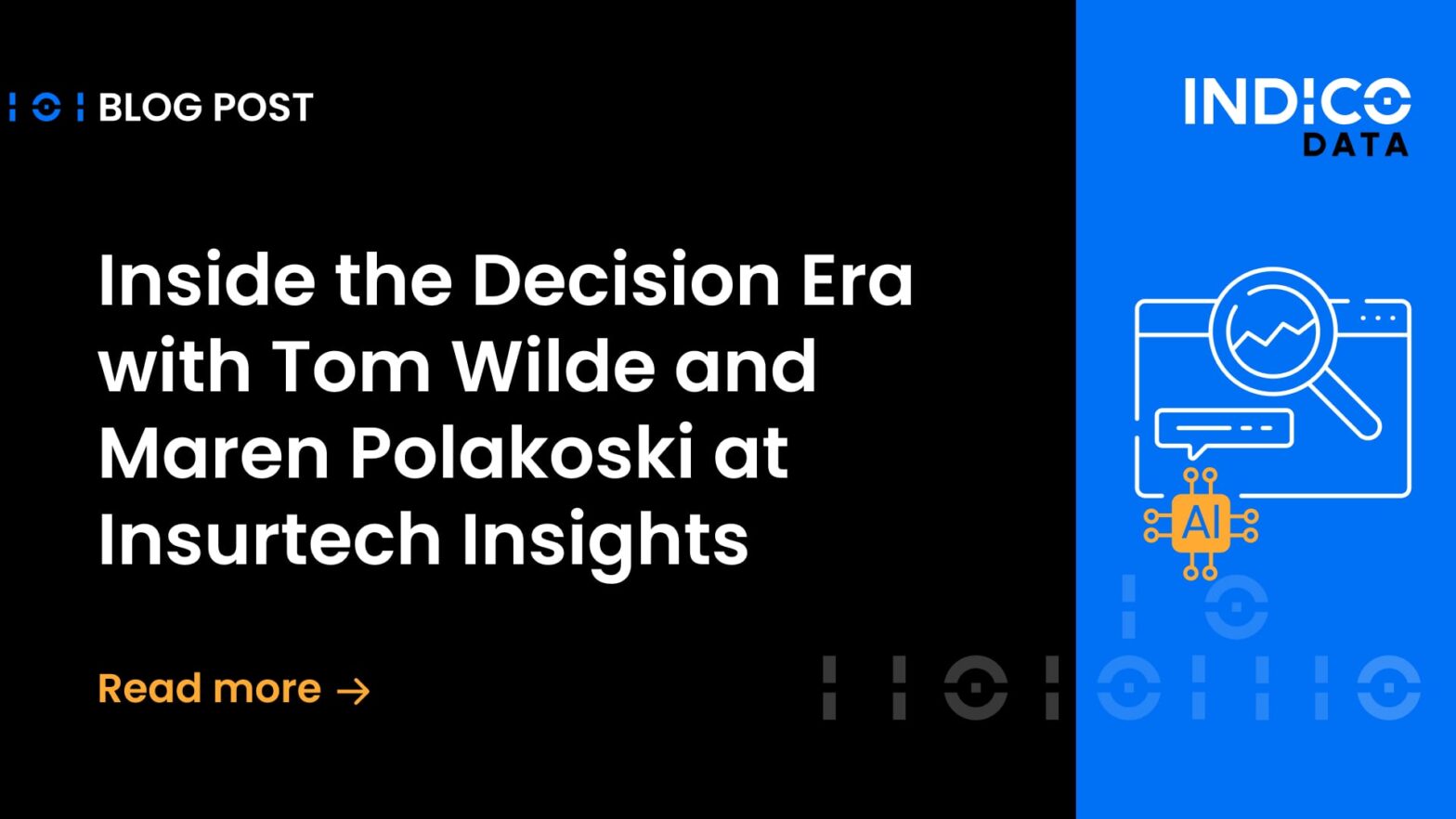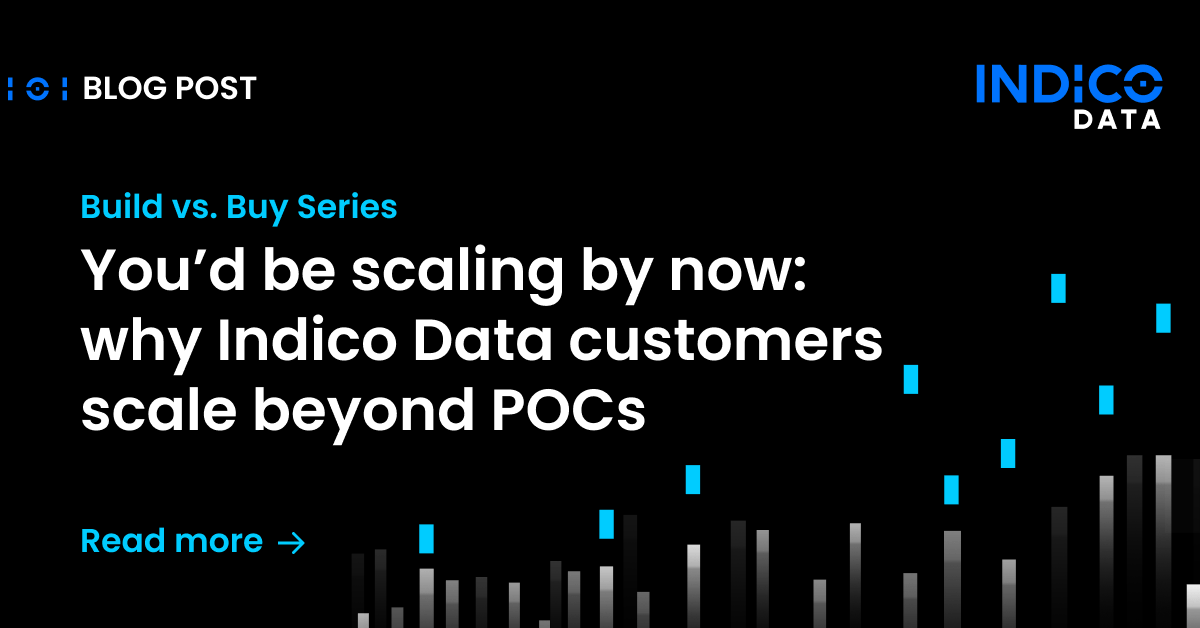The insurance sector is undergoing a digital revolution driven by AI innovations, which are transforming industries at an unprecedented pace and replacing traditional manual processes and lengthy workflows.
In the latest episode of Unstructured Unlocked, we dove deep into this topic with Sunil Rao, CEO of Tribble. We explored the innovations his company brings to technical sales and how these technologies are pivotal in reshaping the insurance industry and setting new standards for efficiency and customer service.
Listen to the full podcast here: Unstructured Unlocked episode 43 with Sunil Rao, Chief Executive Officer at Tribble
AI and insurance: A match made for efficiency
The integration of AI in the insurance industry promises to streamline operations and enhance customer experiences. One of the standout topics of our discussion was the potential for automation to revolutionize traditional insurance processes. A notable use case lies in automating the underwriting process by analyzing vast amounts of data to assess risk factors accurately. This speeds up response times and frees up valuable human resources to focus on more strategic tasks. As Sunil says, “The insurance industry is ready and eager to have more trustworthy automation solutions.”
Sunil also highlighted a pivotal strategy for the adoption of AI within the insurance sector: focusing on high-leverage, low-risk applications. This approach is especially relevant in industries like insurance, where the stakes of operational disruption are high. By prioritizing AI implementations that offer significant benefits without disrupting core processes, it’s possible to ensure a smoother transition to digital workflows, mitigating risk while reaping the rewards of innovation.
Generative AI: Captivating interest among insurers
The rise of generative AI has attracted insurers’ attention, highlighting their growing fascination with and expectation of its potential uses. This interest highlights the technology’s capacity to revolutionize various aspects of insurance operations. Insurers recognize AI’s potential to mitigate risks, expedite claims and underwriting processes, and streamline operational efficiency. Nonetheless, as Sunil emphasized, the key challenge lies in methodically integrating this technology into insurers’ core processes, ensuring strategic alignment and tangible benefits.
For insurers seeking to leverage AI effectively, distinguishing between genuinely transformative solutions and mere AI hype is crucial. Establishing the credibility of potential AI partners through rigorous testing, validation, and clear demonstrations of value is essential. Insurers should prioritize AI solutions that offer tangible efficiency gains and align closely with their strategic objectives.
Related content: Leveraging LLMs and automation in insurance: A webinar recap
How AI automation is transforming the insurance industry
By leveraging AI’s ability to automate complex tasks, insurance companies have the potential to streamline workflows, reduce costs, and improve customer experiences. Additionally, strategic implementation of AI can help mitigate risks and improve accuracy in underwriting and claims handling. It’s clear that AI has the potential to revolutionize the insurance industry and create new opportunities for innovation.
An underlying theme of our conversation was the empowerment of human talent through AI. As Michelle Gouveia said, “To streamline operations for business lines with standardized question sets or straightforward data, agents can initiate triage by identifying key points from incoming applications or submissions and swiftly progressing them. For non-standard cases, agents can meticulously highlight missing elements or discrepancies, flagging them for further action. This proactive approach ensures efficient handling of both standardized and non-standard cases, facilitating smoother processing and resolution.”
Related content: Revolutionizing document processing: IDP solutions
The path forward: AI as a catalyst for change
As we look to the future, the role of AI and automation in driving industry transformation is unequivocal. Sunil’s insights underscore the importance of adopting AI with intention, focusing on applications that offer significant benefits while aligning with broader business goals. For the insurance sector and beyond, the integration of AI presents an opportunity to streamline operations and redefine what is possible, setting new standards for efficiency, innovation, and customer service.
Thanks for tuning in, and we’ll catch you on the next episode! Check out the full Unstructured Unlocked podcast on your favorite platform, including:
Subscribe to our LinkedIn newsletter.
Frequently asked questions:
- Can you provide specific examples of how AI automation is currently being implemented in the insurance industry, beyond the general descriptions provided? Specific examples of AI automation in the insurance industry could include the use of natural language processing (NLP) algorithms to analyze customer inquiries and automatically generate responses, thereby streamlining customer service processes. Additionally, machine learning algorithms can be employed to assess historical claims data and identify patterns of fraudulent behavior, enabling insurance companies to detect and prevent fraudulent claims more effectively.
- How do insurance companies navigate the potential ethical concerns or biases that might arise from relying heavily on AI algorithms for tasks like underwriting and claims processing? Ethical concerns and biases in AI-driven insurance processes are indeed significant considerations. Insurance companies must carefully design and monitor their AI algorithms to ensure fairness and avoid discriminatory outcomes. This involves implementing measures such as regular audits of algorithmic decision-making, ensuring diverse representation in the data used to train AI models, and providing transparency to customers about how AI technologies influence their insurance outcomes.
- What are some potential challenges or barriers that insurance companies face when integrating AI into their existing systems, and how are these challenges being addressed by industry leaders like Sunil Rao and his company, Tribble? Integrating AI into existing insurance systems can present various challenges, including the need to update legacy IT infrastructure, address data privacy and security concerns, and navigate regulatory compliance issues. Industry leaders like Sunil Rao and his company, Tribble, may address these challenges by offering customizable AI solutions that seamlessly integrate with a company’s existing workflows. Additionally, they may provide comprehensive training and support to help insurance companies adapt to the new technology effectively. Moreover, fostering collaboration between AI developers and insurance industry experts can facilitate the development of AI solutions tailored to the specific needs and challenges of the insurance sector.


